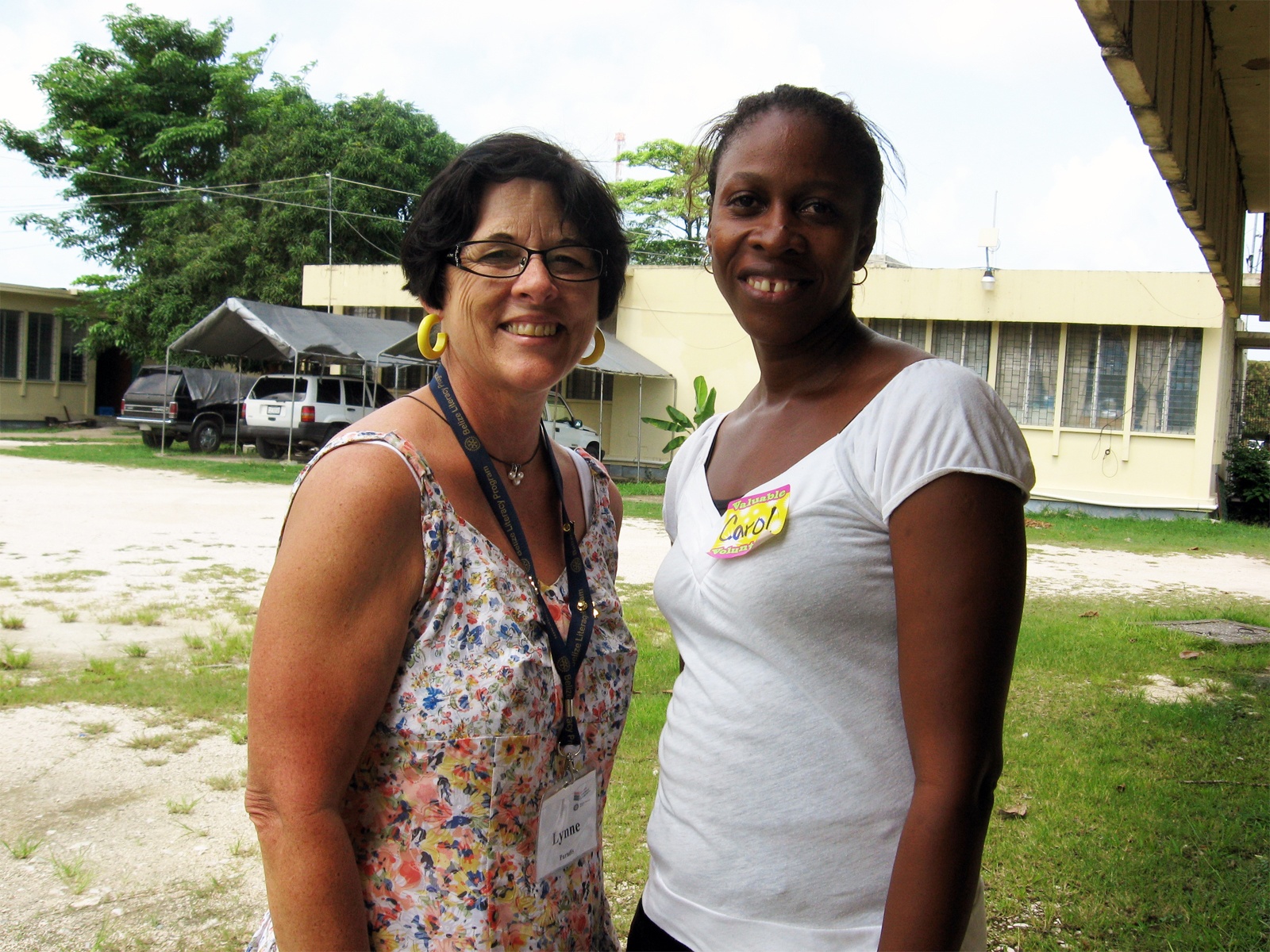With a mission to build literacy rates amongst students, Lynne Paradis first went to Belize in 2007.
“I went down there to teach science,” says the Rotarian and associate superintendent of Learning Service for Red Deer Catholic Regional Schools.
“You can’t help but fall in love with Belize when you go there.” Paradis now helps to facilitate an ambitious program she believes can have positive impact for more than 130,000 students in the small Central American nation.
Paradis says local residents are starting to get used to the sight of her on her regular trips. Many recognize her on the busy streets of Belize City and affectionately call her “Dr. Lynne.”
It’s her mission to bring literacy to the impoverished nation by implementing standardized programs and teacher training.
“My big excitement is now I’ve got it into Red Deer, the Red Deer Rotary Club will be the hub of activities” for future work in Belize. A key part of the process has been connecting Rotarians in Red Deer with Rotarians in Belize and their counterparts in education and at key levels of government.
It’s these high-level officials, notes Paradis, who have authority to implement actual change.
“We have absolutely no power to enact change unless principals and the government of Belize are involved,” she says. Without a long term, comprehensive plan that looks at literacy issues nationally, the program cannot sustain itself.
Going into this summer’s program, Paradis says its in a “really, really good place.” About 24 teachers will travel to Belize in August to train principals and teachers who will in turn coach other teachers. It’s an intensive two weeks.
“Most teachers in Belize have no training, some aren’t even literate,” says Paradis. Every moment of training the Albertan contingent can give is invaluable.
“Albertan teachers are some of the most well trained teachers in the world,” she notes. The teachers that go each year represent some of the best teachers and facilitators in the province, and include superintendents and PhD’s.
“Knowing you can share your skill set with someone else who doesn’t have it is rewarding,” one reason Paradis gives to explain why there are more applicants for the program than volunteer positions.
The teachers who receive training are extremely motivated to learn and are eager to improve the situation for children. They face enormous challenges.
Although English is considered the national language, the reality on the ground is that most people speak Kriol or Spanish. About 20% of the population considers English to be its native tongue.
With inadequate training and outdated curriculums teachers struggle to teach English as a second language to students whose schools are supposed to be teaching English as the national language.
To prepare for the upcoming summer program, Paradis heads to Belize in March to establish priorities for the program. She is driven to see the program succeed for the long term.
“The last thing Belize needs is more half-finished projects,” an unfortunate consequence many short-term teams leave behind because they don’t think about sustainability.
To ensure the literacy program is more than just a set of good intentions, Paradis continues to build relationships with organizations in Red Deer who want to partner with the Rotary Club to ensure the program can be maintained in the future.
The program’s track record of building relationships at home and in Belize has ensured there are tight safeguards to ensure the donations of money, time, and goods go to the people they are intended for.
Paradis welcomes individuals or organizations to partner with the Rotary Club in Red Deer to improve literacy in Belize.
“We can help make a difference,” she assures, confident that increased partnership and carefully developed planning will make a lasting difference in many lives for many years.



